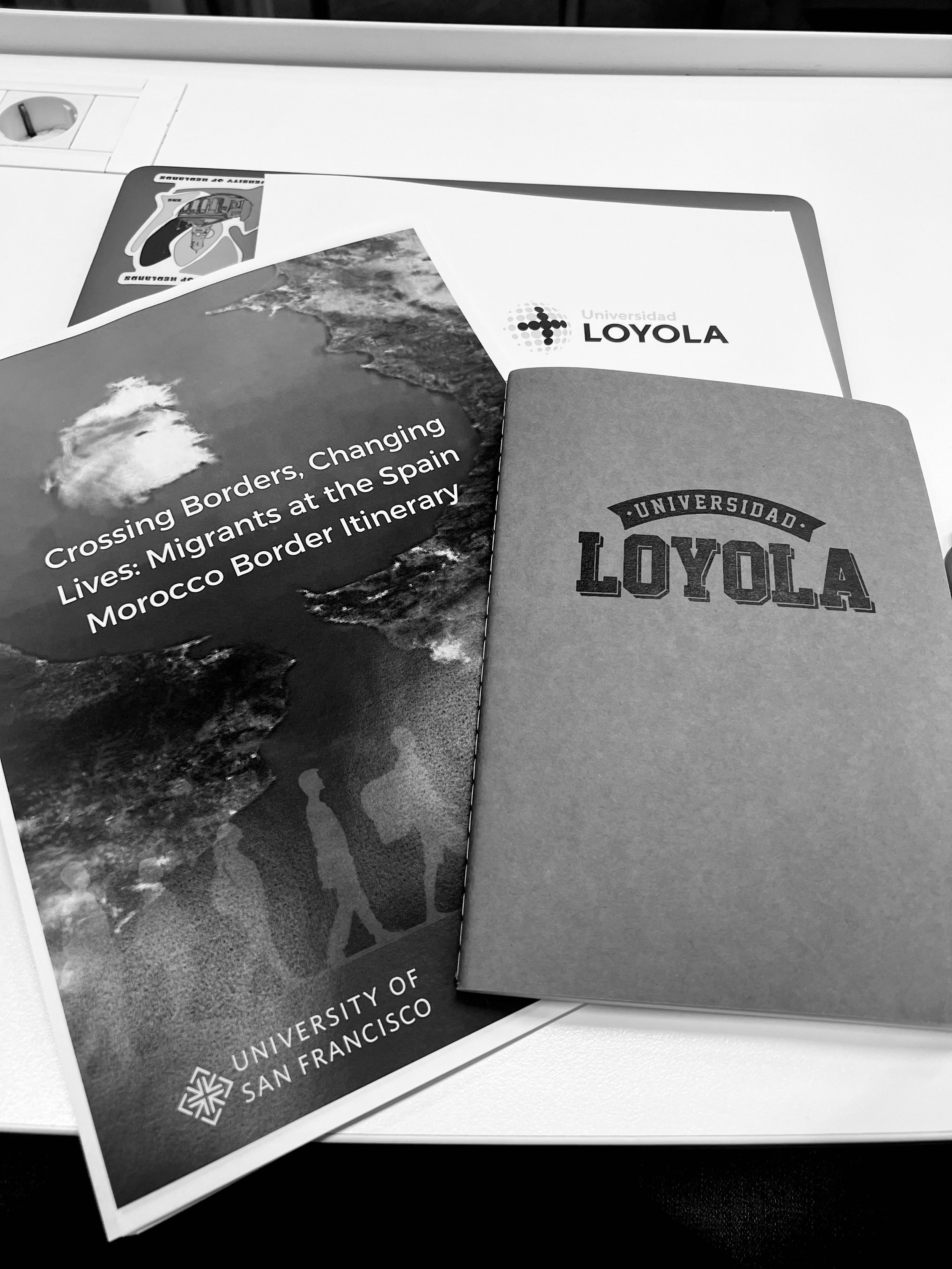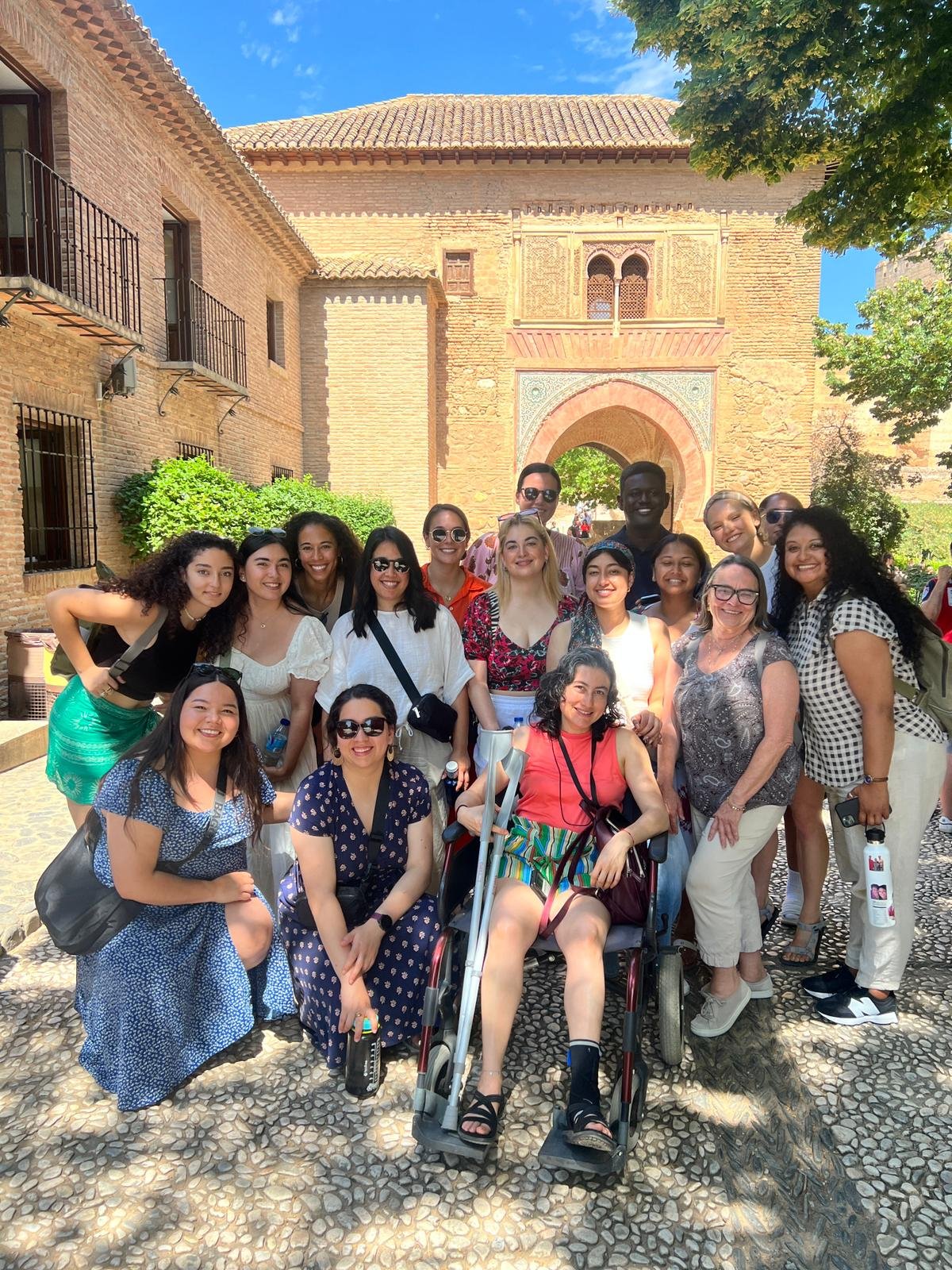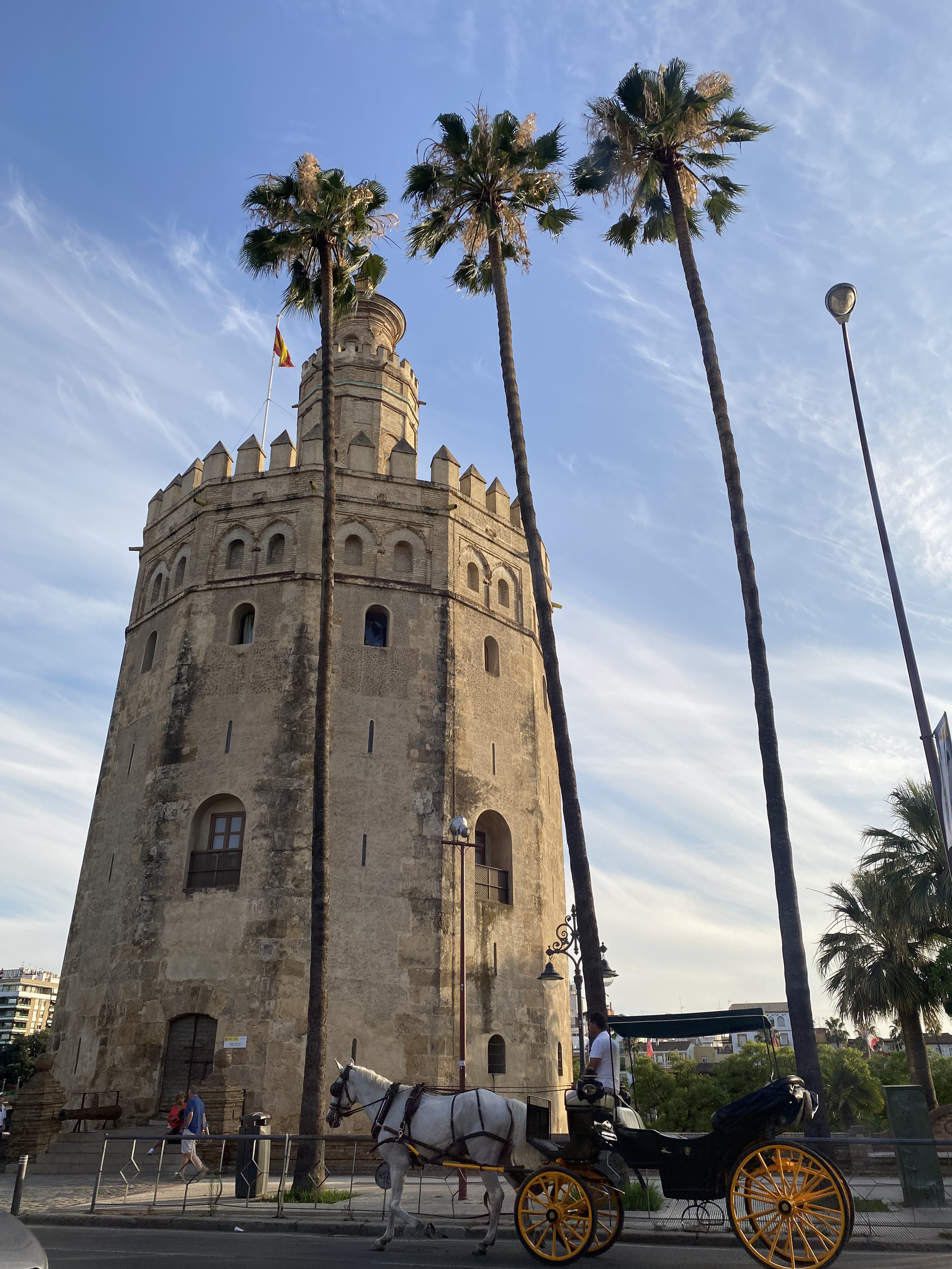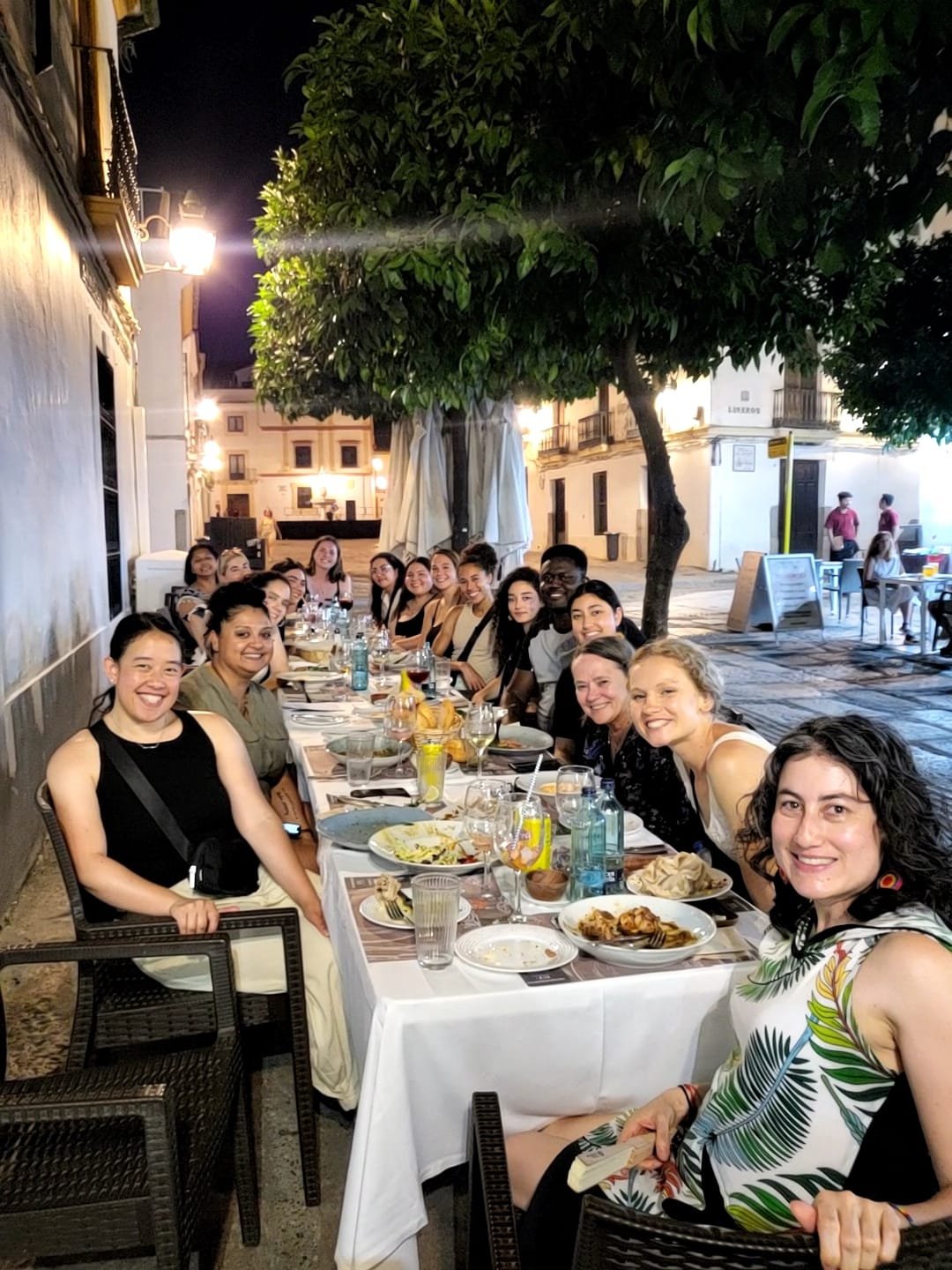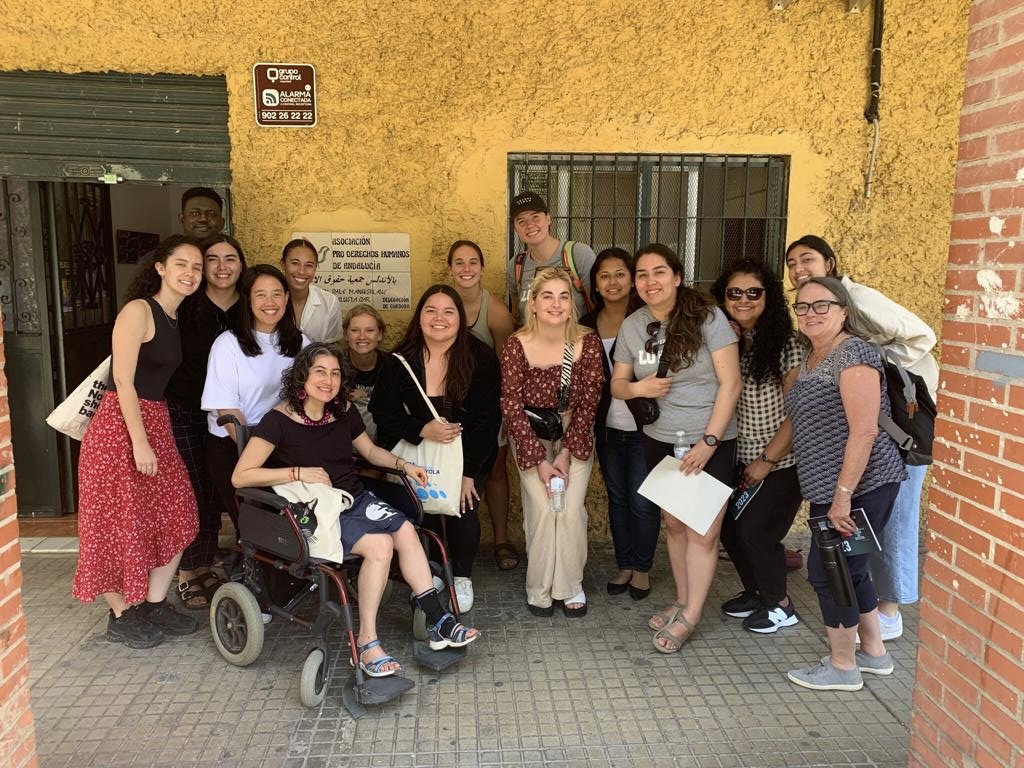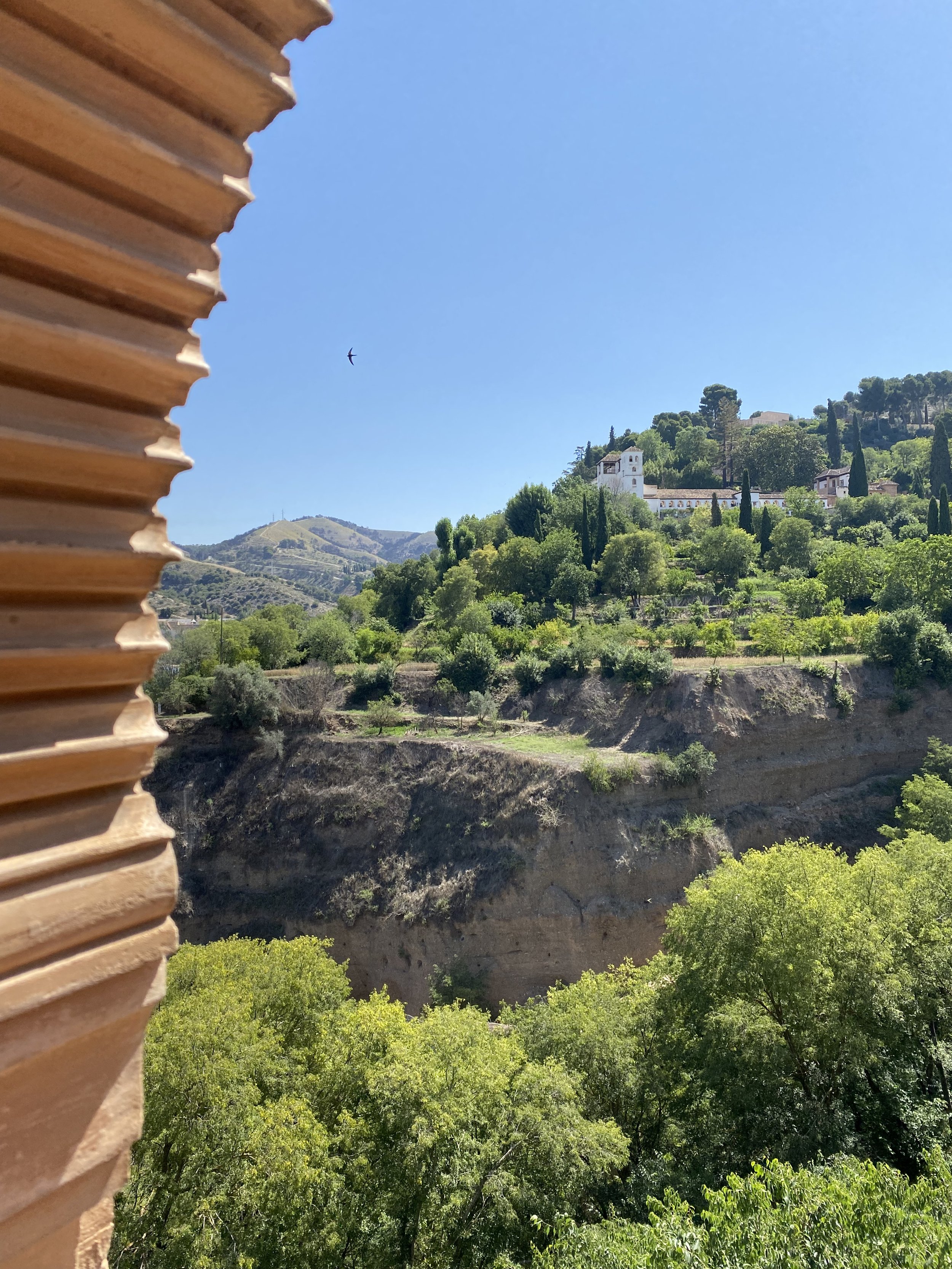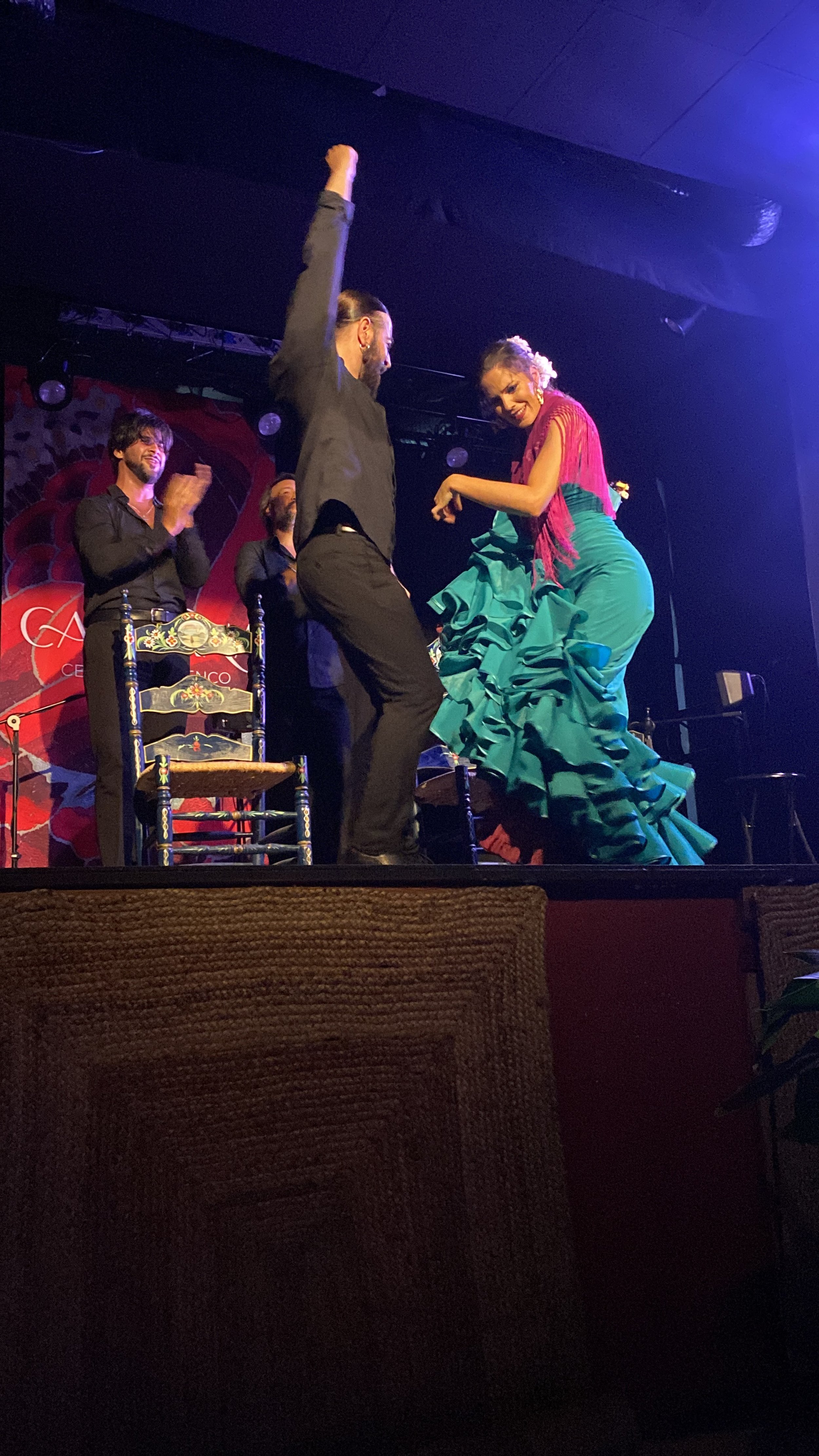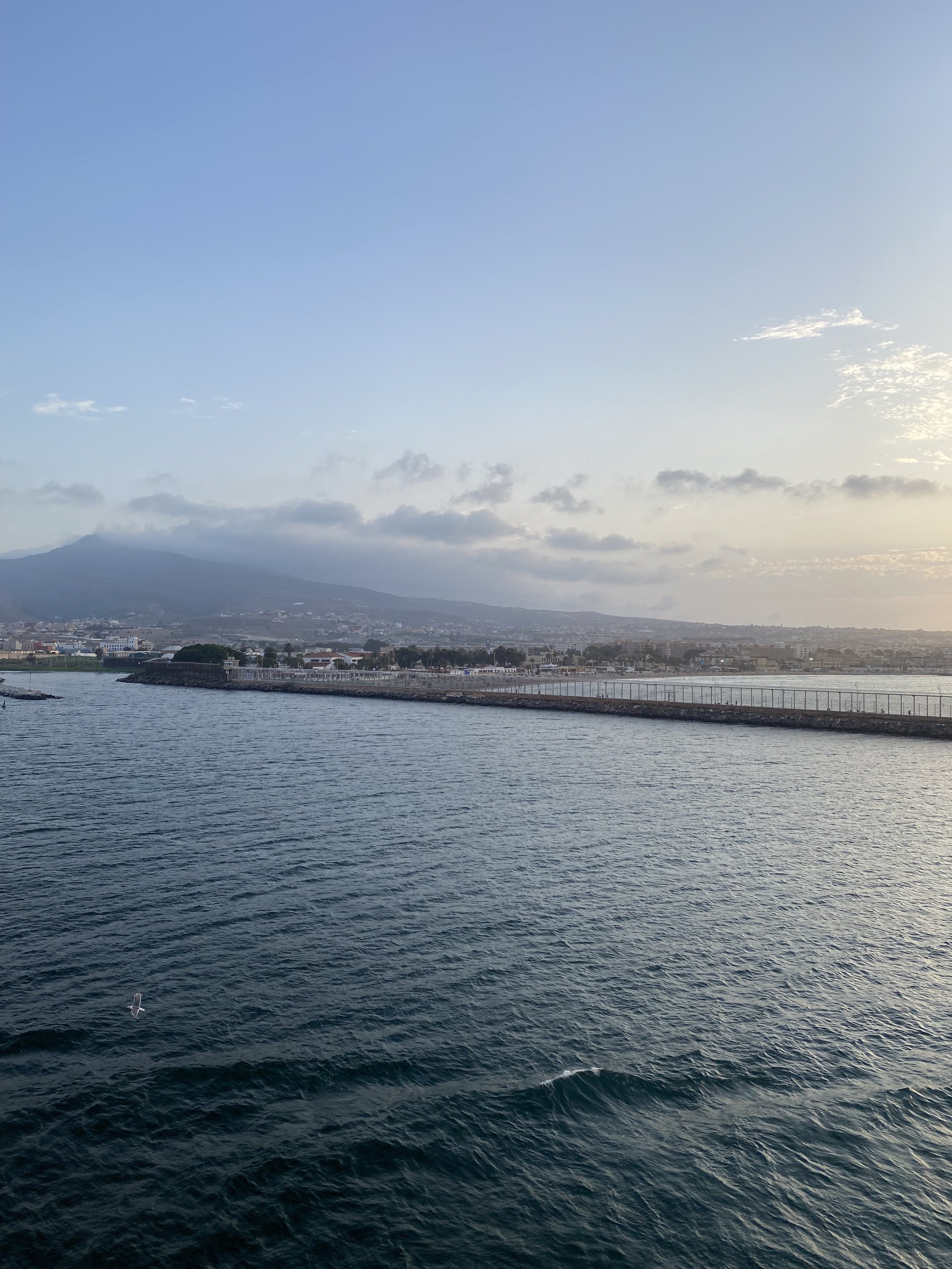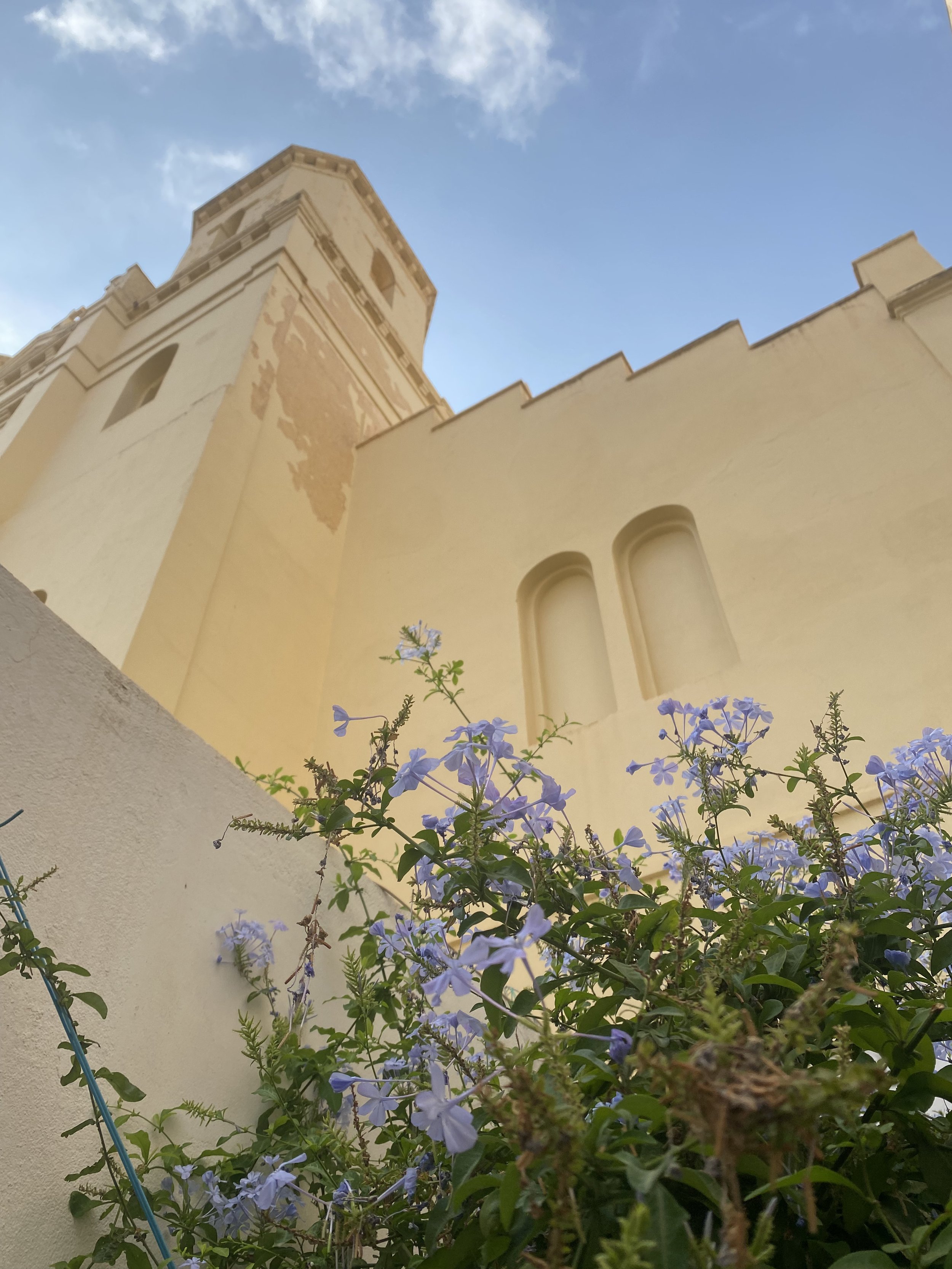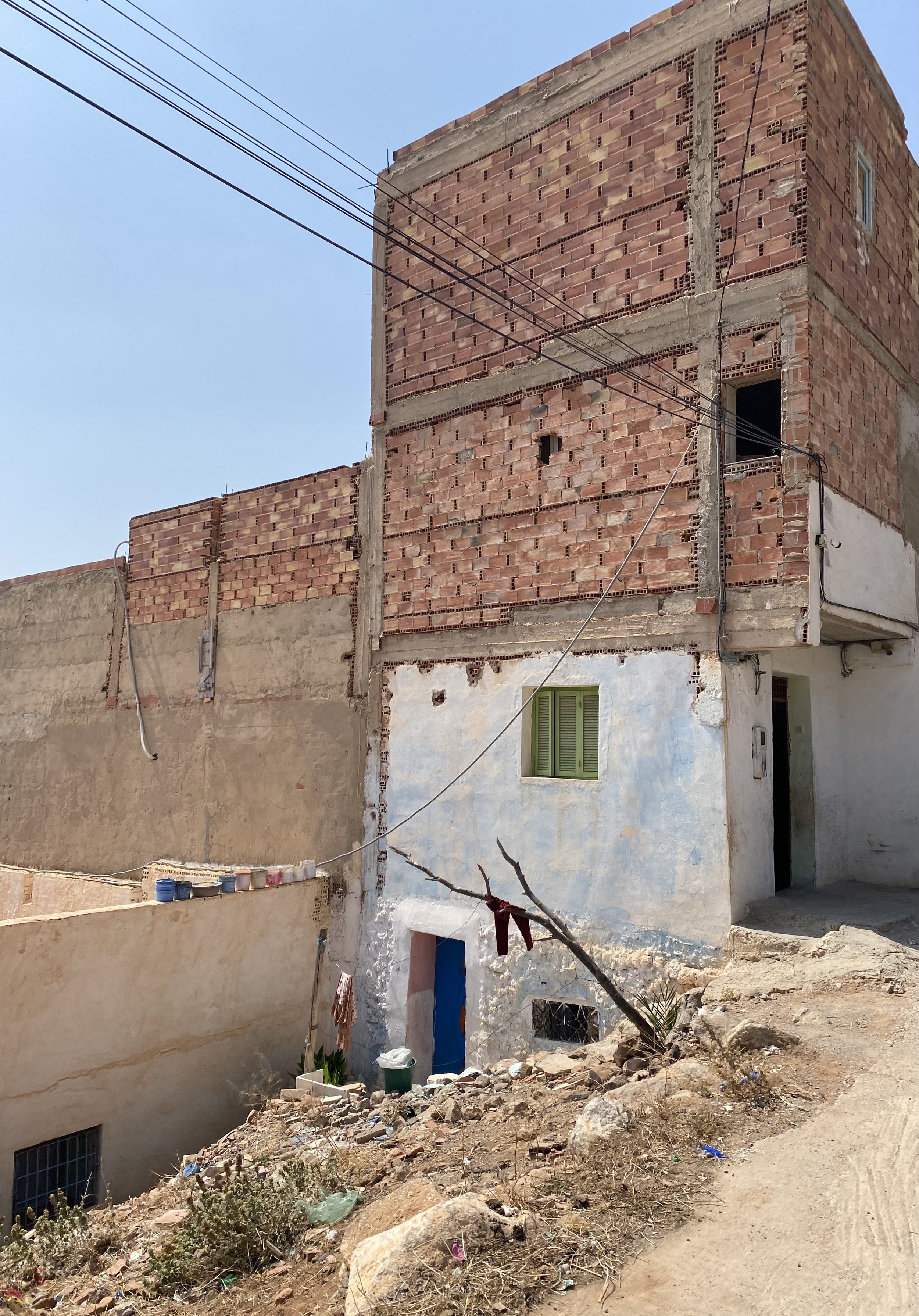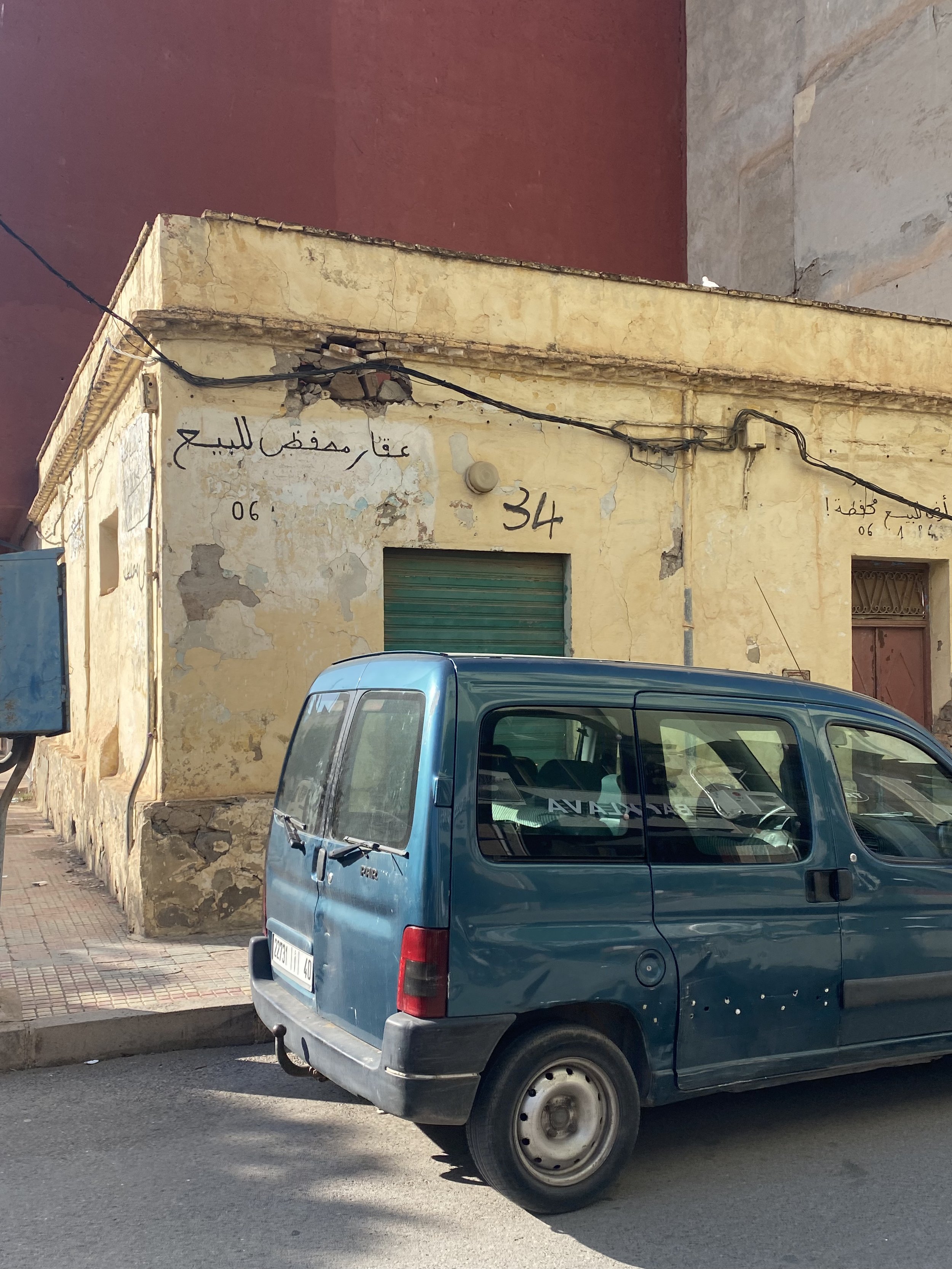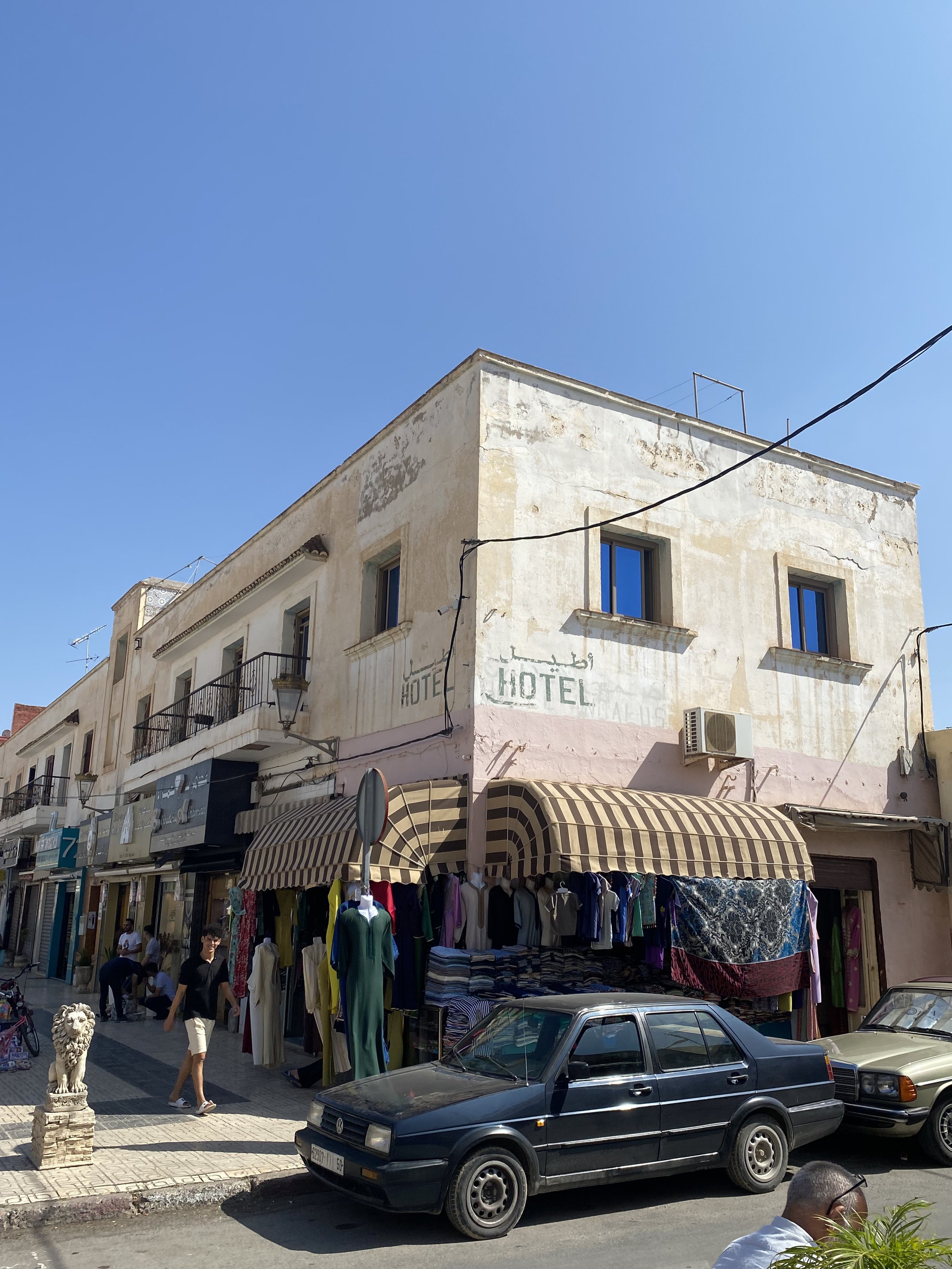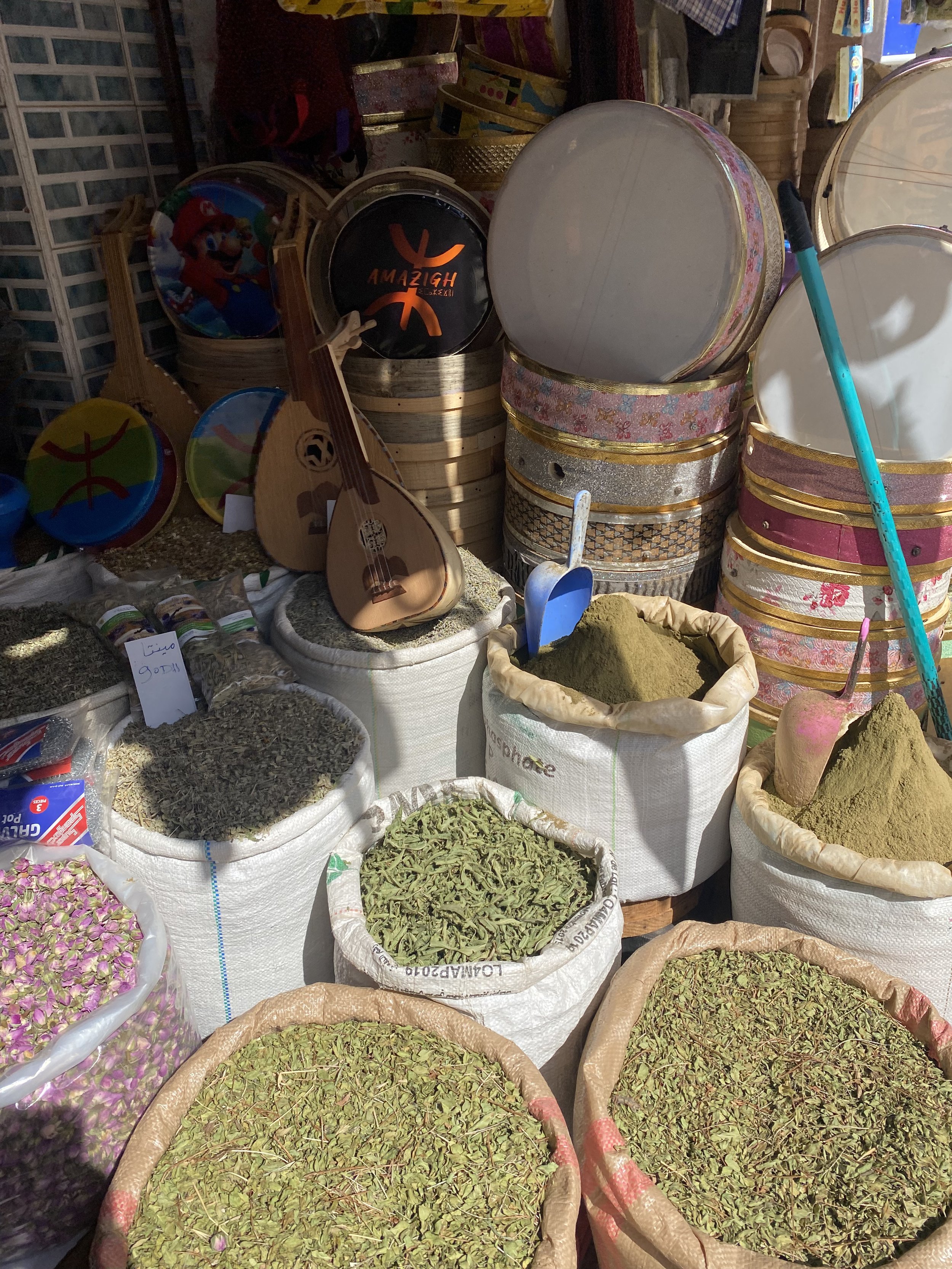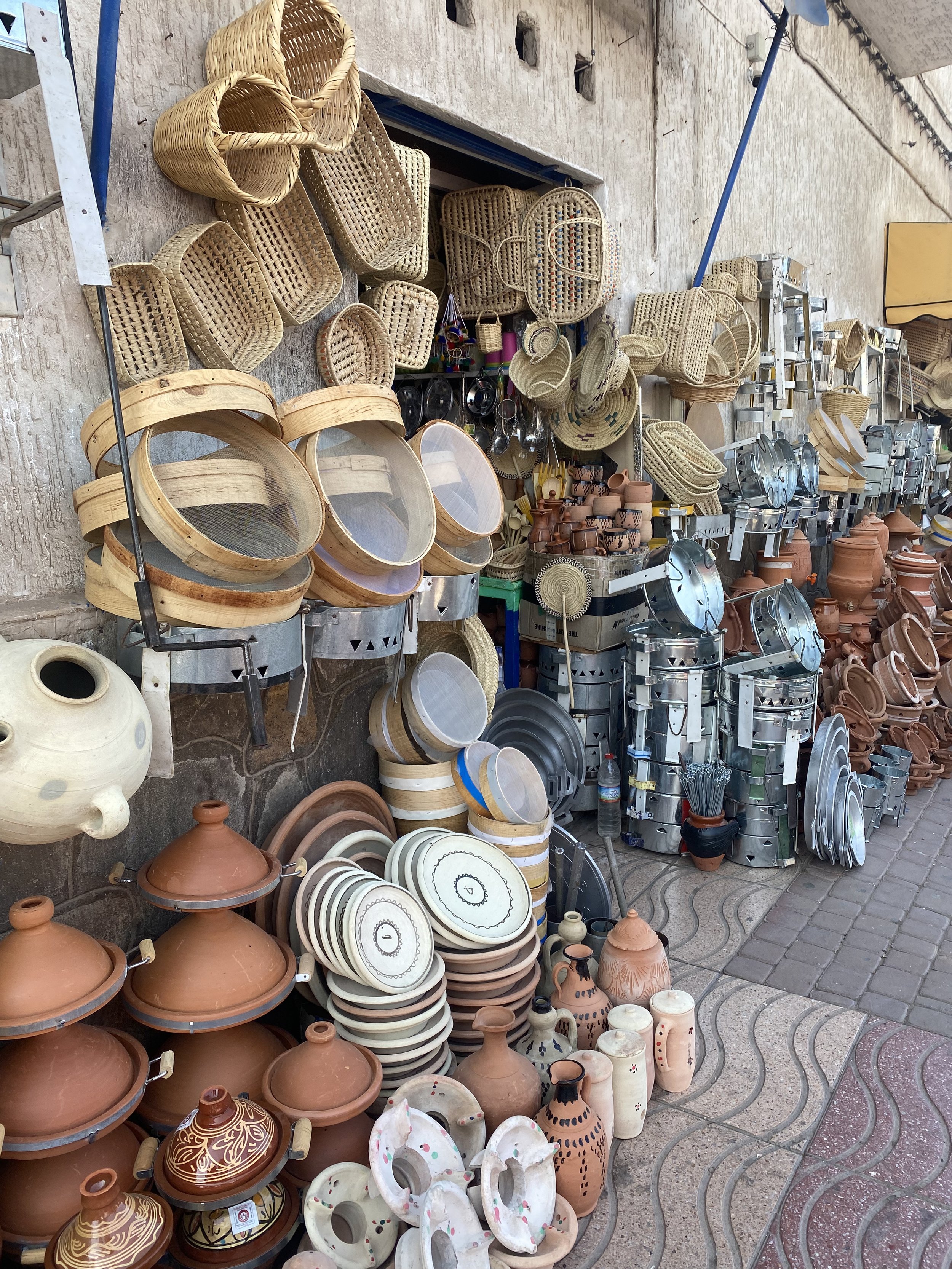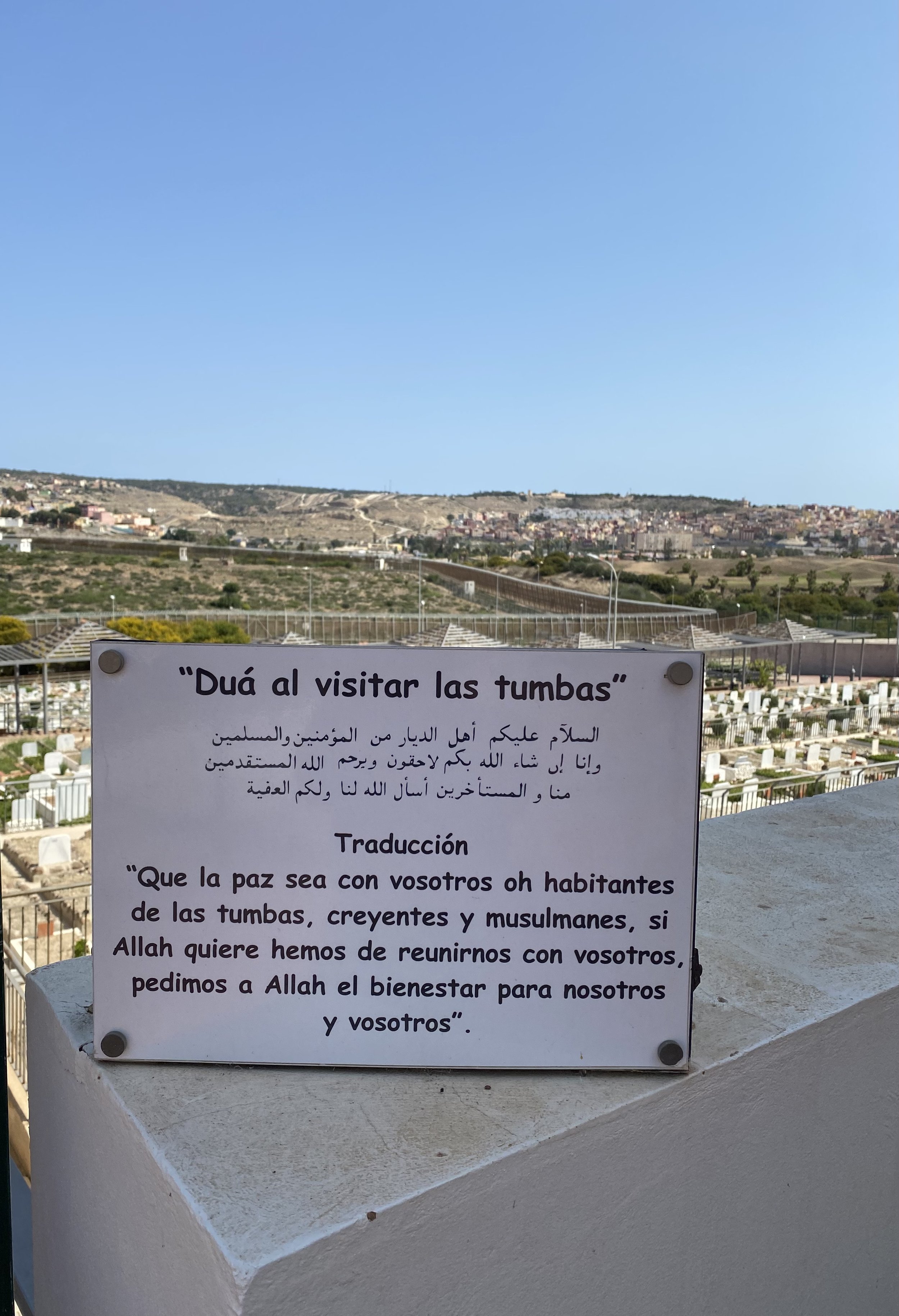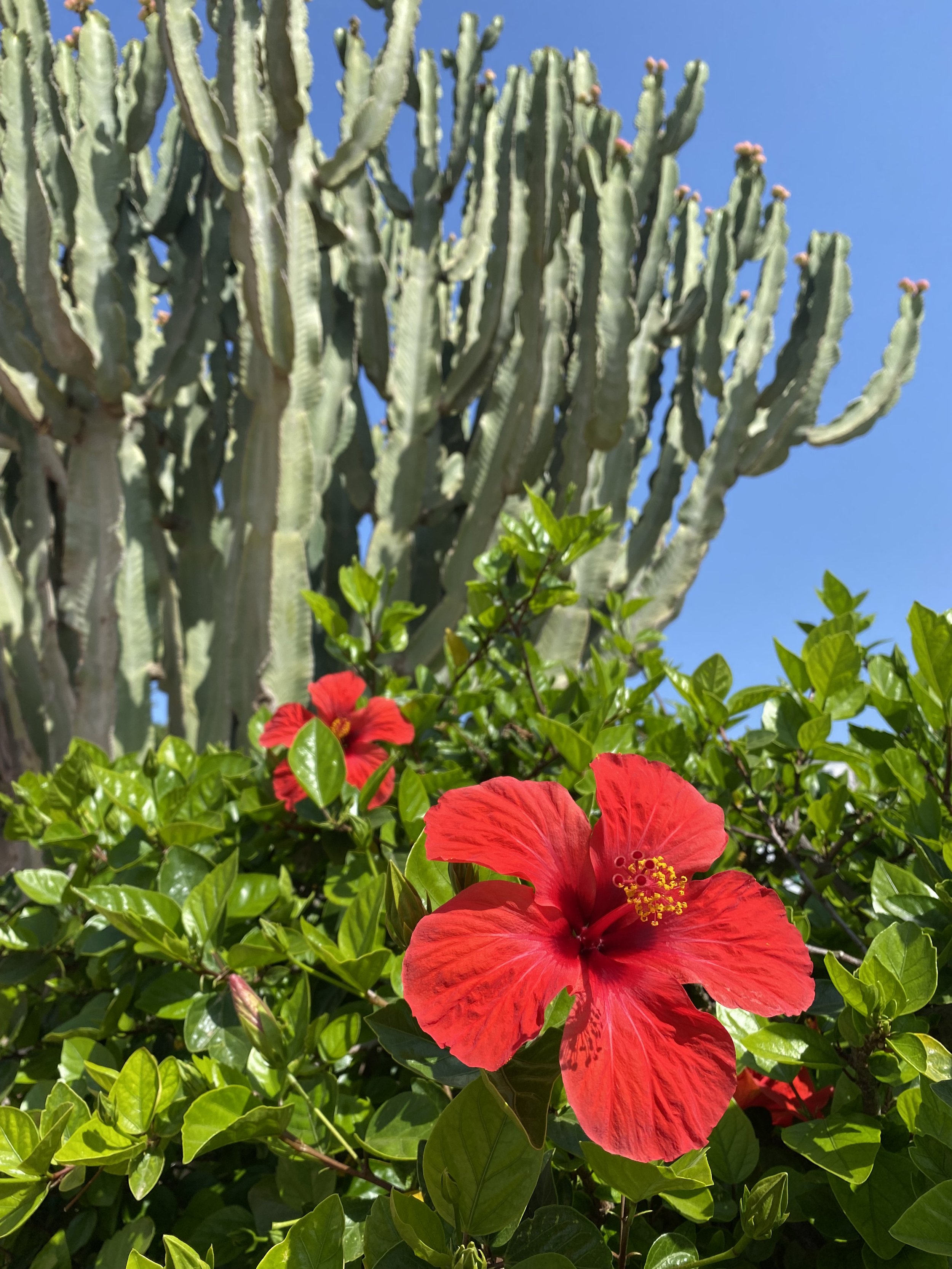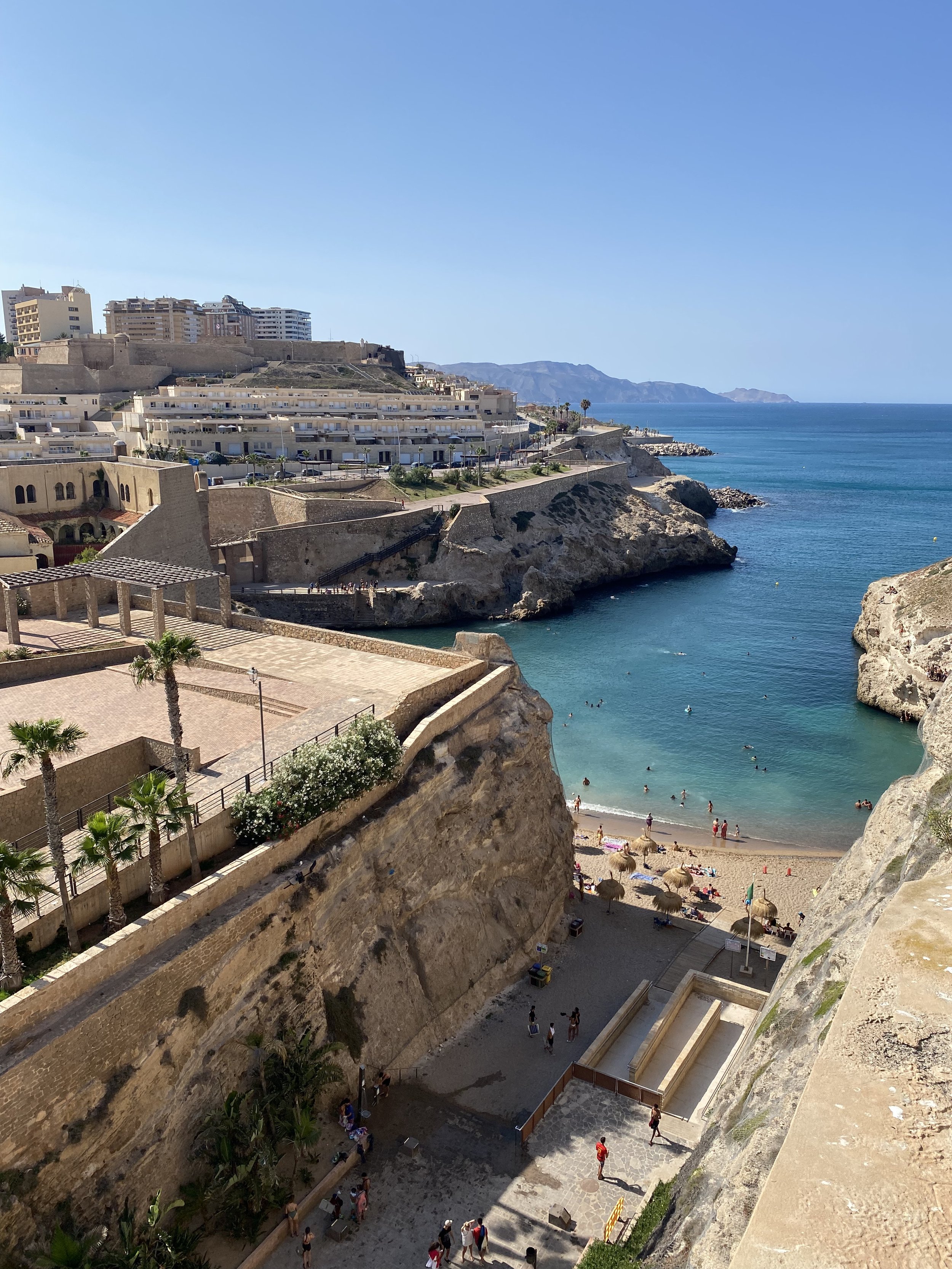Crossing Borders, Changing Lives: Migrants at the Spain Morocco Border
Written By: MIMS Cohort 7 student Tay Ingersoll
This summer, the MIMS program offered the immersion course “Crossing Borders, Changing Lives: Migrants at the Spain Morocco Border”, a collaboration between the University of San Francisco and Universidad Loyola. Students engaged in critical seminars, met with grassroots organizations advocating for immigrant rights and social justice, and experienced cultural activities. From June 11-23, fourteen USF students (nine from MIMS Cohorts 6 and 7) and MIMS Professor Lois Lorentzen visited Sevilla, Cordoba, and Granada, Spain, Nador, Morocco and the autonomous city of Melilla, Spain.
Seminars in Andalusia, Spain, ranged from migration related topics that included race, gender, the critical situation at southern borders, development and cooperation, European migration policy, minors and young adults in transition, and interreligious and intercultural dialogue. In Morocco, key seminars discussed the Moroccan context of migration and challenges migrants face while on the move. In Spain we visited migrant organizations that included the Andalusian Agency of International Cooperation for Development, Pro-Immigrants Association of Cordoba, and APDH Pro-Human Rights Association of Andalusia. In Morocco and the autonomous city of Melilla, Spain we benefited from field experiences with Centro Baraka, Nador’s Diocesan Delegation of Migration Team, and Las Hijas de la Caridad. These organizations showed on the ground efforts to support and accompany the immigrant community. Cultural activities included seeing the beautiful gardens at the Royal Alcazar in Sevilla, the rich history of the Mosque-Cathedral in Cordoba, witnessing an unforgettable Flamenco show, and touring the Alhambra in Granada. The preceding are mere glimpses of our vast experiences throughout the immersion program.
This course allowed students to gain a far better understanding on the current migratory crisis from Morocco to Spain. We learned about the complexities of politics and migration with EU border externalization and securitization, ongoing migrant discrimination and exclusion, and the stark reality of this situation through an in-person experience. Seeing the border wall, the checkpoints, the beaches and waters where migrants are risking their lives daily to cross. These symbols of dehumanization impacted us immensely. It was moving to observe organizations who serve to dignify migrants by providing for their needs to include food, shower, clothing, housing, schooling, childcare, job support, healthcare- and most importantly, to welcome them unconditionally. We recognized our privileges coming into each and every space and reflected constantly on our purpose, our intention in the field of migration. This group of USF students came into this course with empathy, mindfulness, gratitude and a willingness to learn. We left humbled by the people striving to make the world a better and safer place for migrants to thrive.
“Traversing the Alborán Sea by boat to travel to Northern Africa carried a heavy feeling. There was a beautiful eeriness gliding across waters which many migrants continue to risk their lives in, especially being privileged to travel on a large, safe vessel. As we began to see Moroccan landscape in the foggy distance, we were met by the sight of three things: a cannon facing toward Spain, a Spanish flag and the intense border wall separating Moroccan and Spanish land. A sight I can never unsee. Furthermore, when crossing the border between Nador and Melilla, the first sight I encountered was racist graffiti toward the Moroccan community. It was eery and intimidating to witness such blatant discrimination, yet another form of anti-immigrant sentiment from stepping a mere 100 feet into Spanish territory. One day we visited a Muslim cemetery in Melilla where a placard read, ‘Peace be with the inhabitants of the tombs, believers and Muslims. If Allah wants we will meet with you. We ask Allah for the well-being of us and you’. This sentiment cut deep as we were told when the border wall was built, it separated the cemetery so families in Morocco do not have access to visit their loved ones buried in Melilla, Spain. The idea of family separation through the deterrence strategy of border externalization is overwhelmingly heart breaking to see in a peacefully, quiet cemetery. As we drove from the cemetery into the downtown plaza of Melilla, I sat by the window staring at the endless strand of a frightening partition. At times I could count six different forms of barrier from barbed wire on the ground, to the tall, green walls with doors, curved hooks and moats in between. It’s just a terrifying reality. Finally, I will always carry the knowledge of understanding the power of accompaniment that was clearly represented by members of Centro Baraka to dignify and humanize migration. They showed us the importance to not only accompany others but to allow yourself to be taken care of and held. There is so much care and intention in their work it is inspiring as a student and young professional to witness these efforts in person.” -Tay Ingersoll
“I was privileged to visit the Spain/Morocco water and land borders with a deeply committed, passionate, super smart group of students who will use their knowledge to create better policies and practices for migrants. We were all transformed by what we learned and experienced – suffering, pain, human rights violations, deaths in crossings and the profundity and transformative power of accompaniment, resilience, and hope.” -Professor Lois Lorentzen
Lastly, MIMS wants to recognize and thank the Loyola faculty and staff Yolanda Hernández-Albújar, Nerea Larrinaga Bidegain, Gloria Fernández-Pacheco, Tatiana Avignone, Alejandra Ana de Miguel Jones, Pep Buades, Ma Luz Ortega Carpio, María Ángeles Alaminos Hervas, Lucía García del Moral Martín, Estela Camus García, Gonzalo Villagrán, Jaime Flaquer Garcia, and Borja Martín Garrido for presenting their wealth of knowledge and passion for migration education. The members of the Andalusian Agency of International Cooperation for Development, Pro-Immigrants Association of Cordoba, APDH Pro-Human Rights Association of Andalusia, Centro Baraka and the Diocesan Delegation of Migration Team Jose Luis Vázquez Pérez, Alvar Sánchez, and Danilo Mendoza, and Las Hijas de la Caridad for sharing their experiences as immigrant advocacy, non-profit organizations. The individuals who offered their personal testimonies about their migration experiences. Nes and family, Lama, and Maria for providing constant support throughout our time in Spain and Morocco. USF’s Study Abroad Advisor in the Center for Global Education Paulina Belloso, for managing and organizing our schedule through any unpredictable changes. The USF students who participated in this program for their passion to learn makes programs like this possible. Lastly, Professor Lois Lorentzen for her time and effort to create such an impactful and meaningful course and always ensuring the well-being of her students. We appreciate you all and find deep, meaningful inspiration to continue our work in the field of migration studies, a sincere & life-long thank you!
Links to Migrant Organizations
APDH Pro-Human Rights Association of Andalusia

